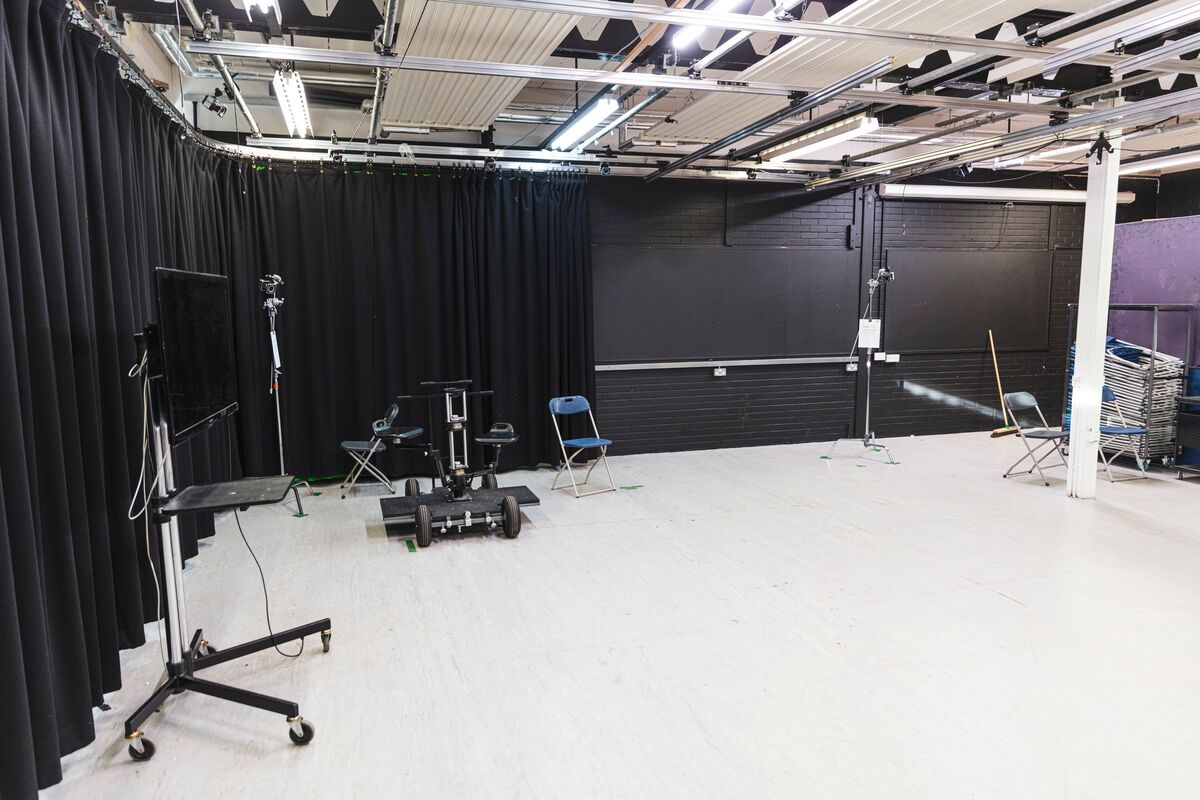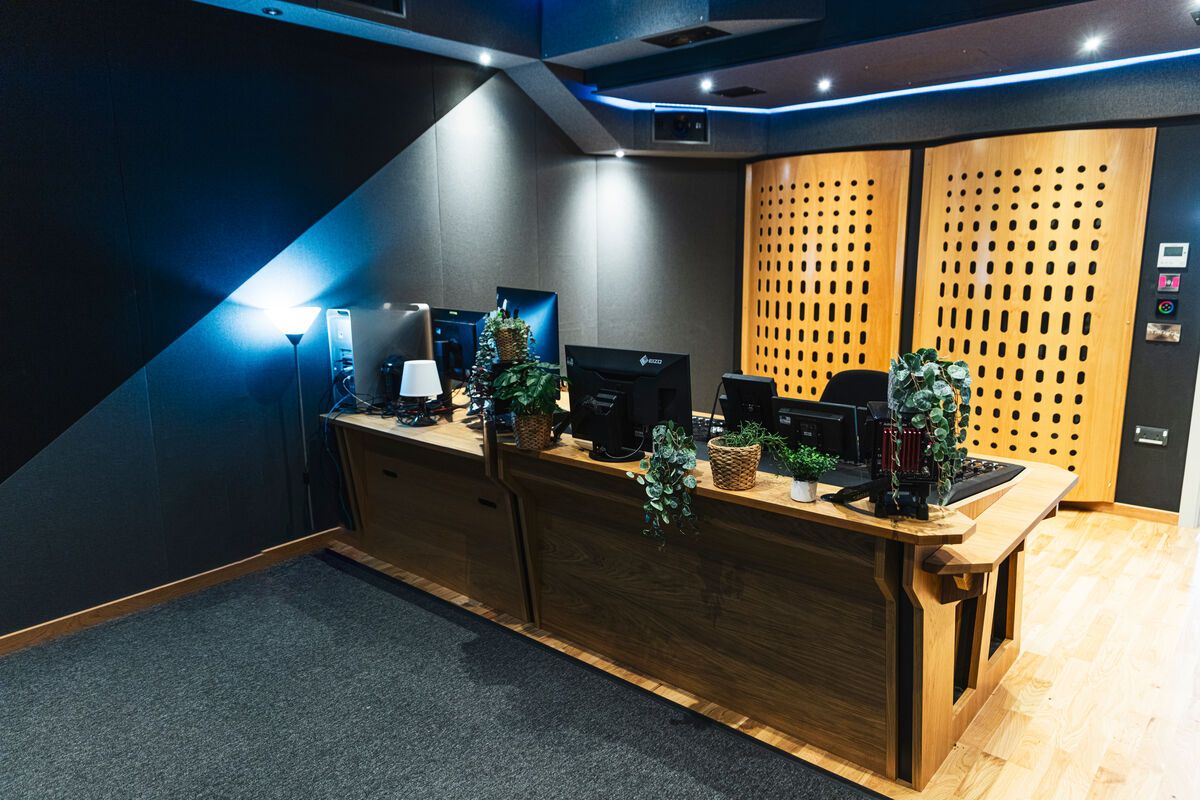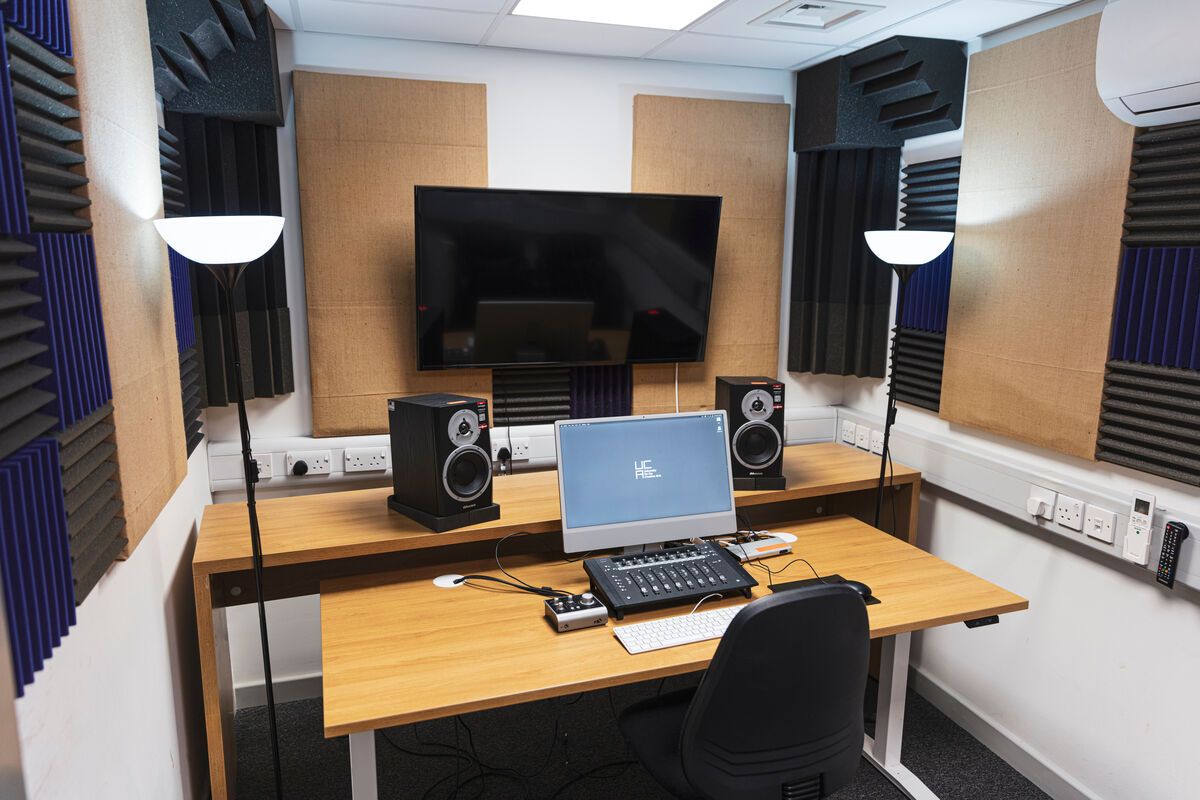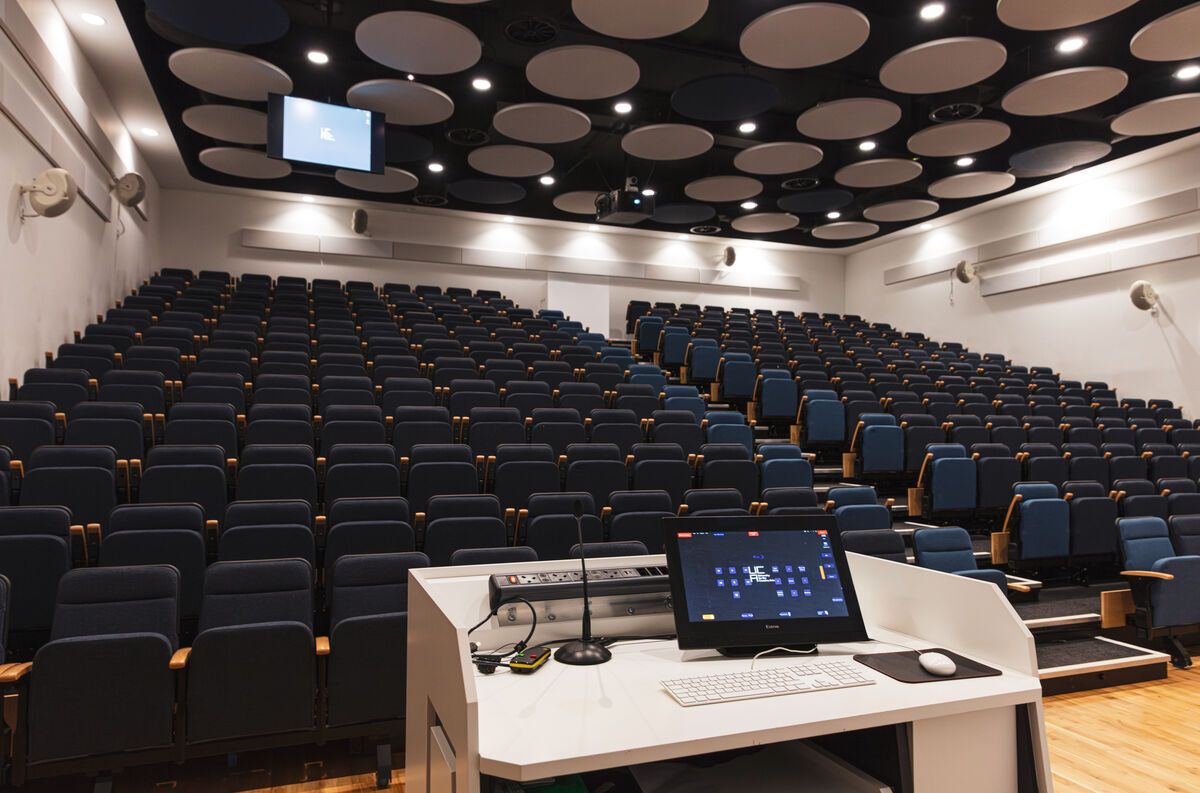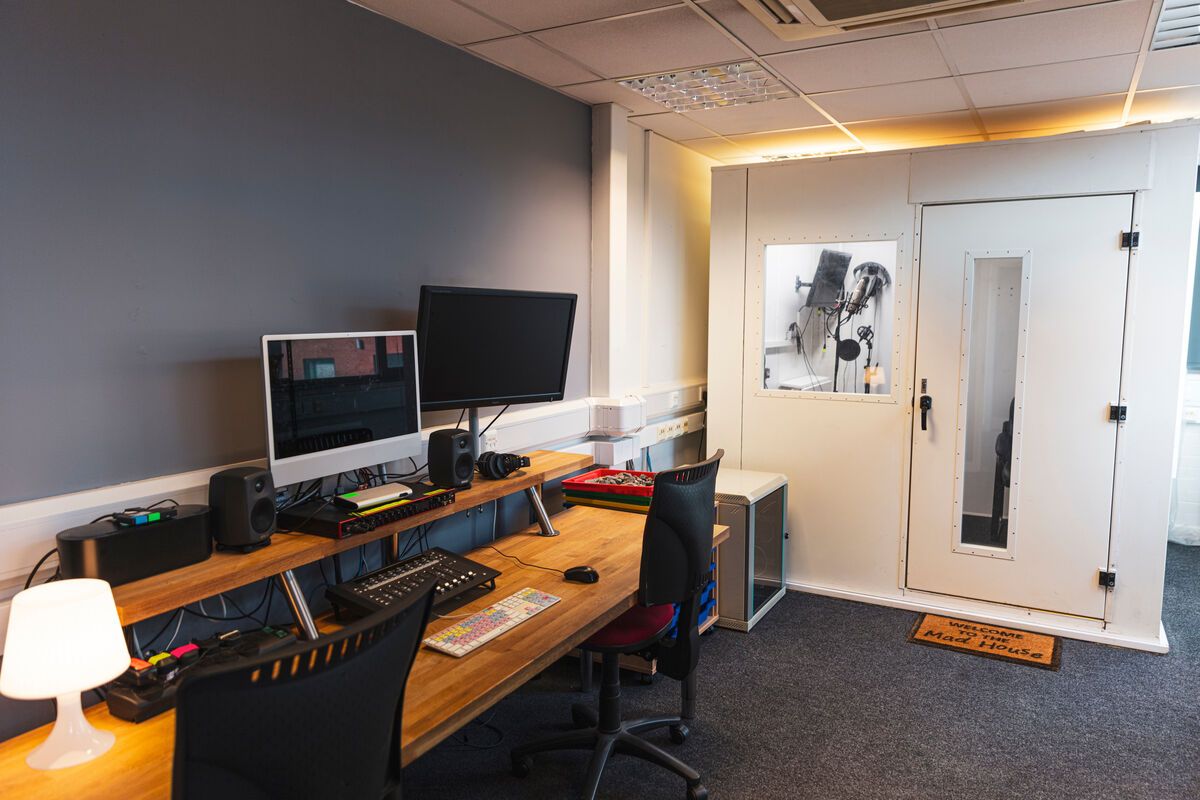Studio Practice (Filmmaking) (top-up) at UCA
UCA's Studio Practice top-up course in Filmmaking at UCA Farnham aims to provide a challenging educational experience and prepare you for postgraduate study in the field.
Working in moving image is a social practice, and you'll be encouraged to consider your work in terms of contemporary meaning and relevance. You will be able to explore both documentary and fiction-based storytelling.
Alongside group activities, you will undertake independent study and research which, together with broader transferable skills, will set you up for your chosen career path, and for further study.
We expect you to come to the course with existing skills that you want to develop. Your practical work will be complemented by the theoretical knowledge you'll develop, and you'll have the opportunity to work on significant practical and writing projects. You will also be encouraged to set out your career pathway and identify the resources you'll need to achieve your goals.
Apply through Clearing
Speak to our Admissions Team today to secure your place.
Upcoming webinars
We offer a range of webinars throughout the year that Studio Practice (Filmmaking) (top-up) students may be interested in.
This includes subject talks, masterclasses, application proccess advice and student life guides. Check out our upcoming webinars and book your place today.
Accreditations, partners and industry connections
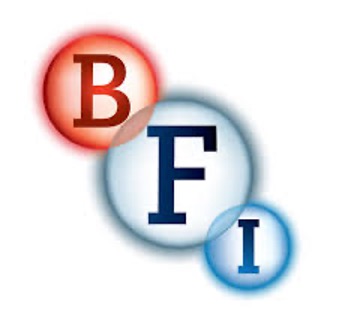
British Film Institute (BFI)
The BFI is a charity and the UK’s leading organisation for film and moving image. It promotes and supports British film from newcomers to established makers, and cares for the BFI National Archive, the world’s largest film and television archive.
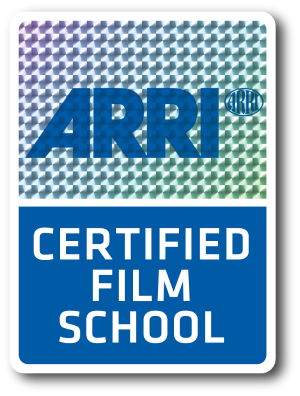
ARRI
ARRI is a leading designer and manufacturer of camera and lighting systems for the film, broadcast, and media industries. The ARRI Certified Film School accreditation is awarded to institutions that meet rigorous standards of technical excellence, creative education, and professional development.
Course
Details
The content of the course may be subject to change. Curriculum content is provided as a guide.
You will study alongside final year students on the BA (Hons) Film Production degree, enabling you to work collaboratively and in a vibrant setting.
Launch
Through interdisciplinary seminars, screenings and workshops, Launch Week focuses on ground-breaking, creative work that has had surprised, shocked, and changed the way we view the world. This will help you see the possibilities and potential of what you could create and achieve in your final year.
Extended Research Project
Emphasising the personal development of critical writing, you’ll research and complete an independently generated and illustrated Extended Research Project.
Final Major Project: Pre-Production
You’ll take on pre-production tasks relevant to your crew roles for the Final Major Project unit. You will also successfully contextualise these roles and the projects for life after graduation, building on technical, collaborative and professional skills you have learned so far.
Opportunity Week
This week comprises a series of interdisciplinary lectures, seminars and workshops centred around life after graduation. This week will help students develop their understanding of the creative industries, working professional environment and what they can expect after graduation.
Final Major Project: Realisation
You’ll further develop your chosen role(s) and complete the projects started in the Final Major Project: Pre-Production unit through production and into post-production and final screening. You are expected to work with a high degree of professionalism in a crew role(s,) and be challenged to further your technical and creative skills throughout.
For the assessment you will be expected to complement the on-screen work with an individual portfolio containing a critical reflection, documenting the strengths and weaknesses of the project work and your contribution, demonstrating the ability to contextualise your work in wider screen culture, and a contextual, creative and technical research folder.
Course specifications
Please note, syllabus content indicated is provided as a guide. The content of the course may be subject to change in line with our Student Terms and Conditions for example, as required by external professional bodies or to improve the quality of the course.
Explore our gradshow
Each year, we’re privileged to be able to share our graduates’ incredible work with the world. And now’s your chance to take a look.
Visit the online showcaseFees & financial support
Tuition fees - 2025/26
- BA (top-up) course: £9,535
Tuition fees - 2025/26
- BA (top-up) course: £9,535 (see fee discount information)
Tuition fees - 2025/26
- BA (top-up) course: £17,500
Please note: The fees listed on this webpage are correct for the stated academic year only, for details of previous years please see the full fee schedules.
UCA scholarships and fee discounts
At UCA we have a number of scholarships and fee discounts available to assist you with the cost of your studies.
Financial support
There are lots of ways you can access additional financial support to help you fund your studies - both from UCA and from external sources. Discover what support you might qualify for please see our financial support information.
Additional course costs
In addition to the tuition fees there may be other costs for your course. The things that you are likely to need to budget for to get the most out of a creative arts education will include books, printing costs, occasional or optional study trips and/or project materials.
These costs will vary according to the nature of your project work and the individual choices that you make. Please see the Additional Course Costs section of the Course Information Document for more details of the costs you may incur.
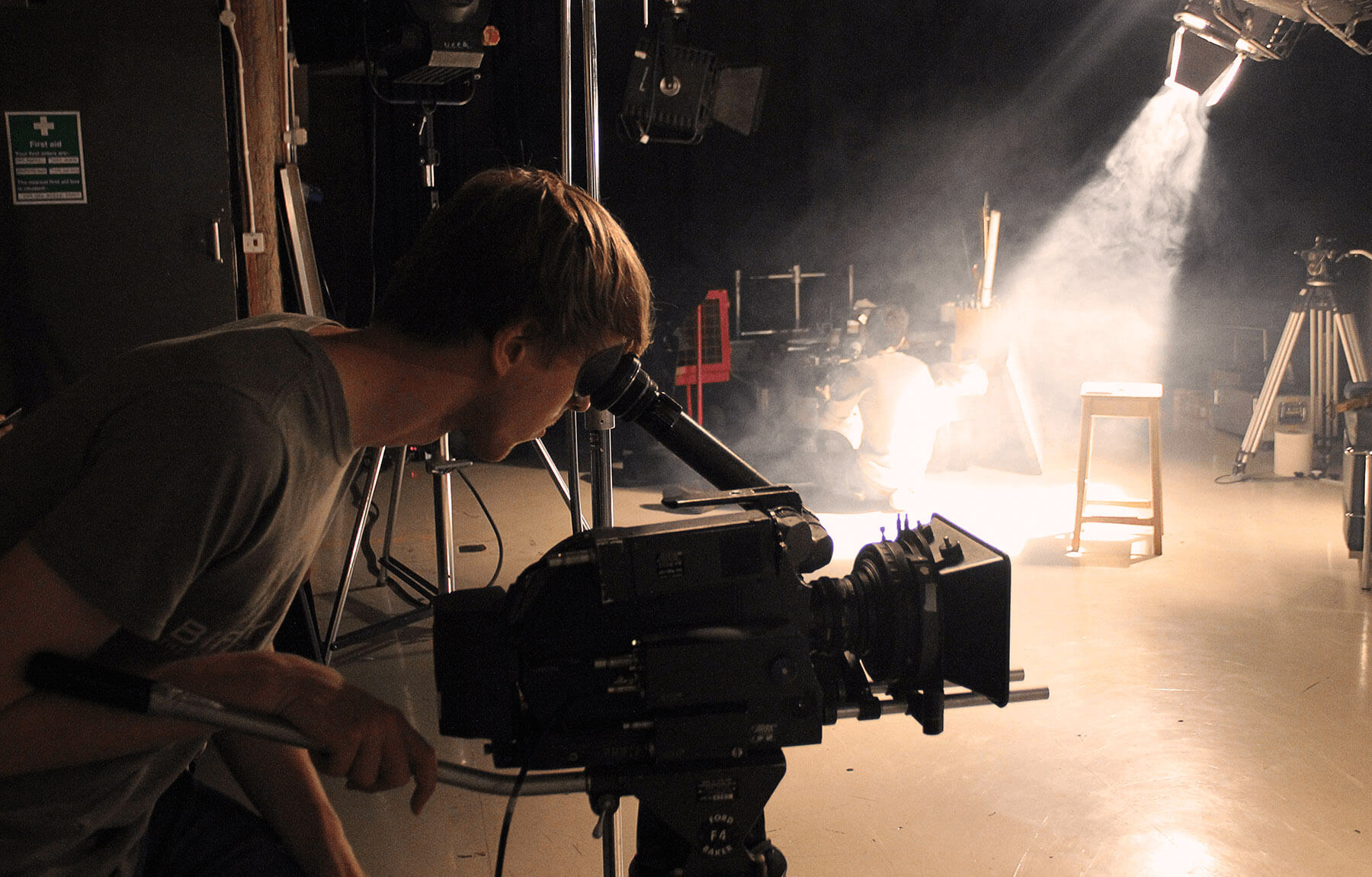
What’s it like being a student at UCA?
That’s a big question. Get some answers from people who are studying right here, right now.
Entry & portfolio
requirements
BA (Hons) course (top-up)
The standard entry requirements* for this course are:
- 240 credits from a relevant degree (120 credits at level 4 and 120 credits at level 5), with a minimum of 55% overall
- Foundation Degree in a relevant subject
- Higher National Diploma in a relevant subject
And/or Accreditation of Prior Experiential Learning (APEL)
In recognition that you may already have a relevant professional qualification, or appropriate working experience in the relevant industries, APEL may be accepted for entry on to the course. This will be based on the partnership articulations and will be assessed on a case by case basis.
Other relevant and equivalent UK and international qualifications are considered on an individual basis, and we encourage students from diverse educational backgrounds to apply.
Portfolio requirements
For this courses, we’ll need to see your portfolio for review. We’ll invite you to attend an Applicant Day so you can have your portfolio review in person, meet the course team and learn more about your course. Further information will be provided once you have applied. View more portfolio advice
*We occasionally make offers which are lower than the standard entry criteria, to students who have faced difficulties that have affected their performance and who were expected to achieve higher results. We consider the strength of our applicants’ portfolios, as well as their grades - in these cases, a strong portfolio is especially important.
BA (Hons) course (top-up)
The entry requirements for these courses will depend on the country your qualifications are from, please check the equivalent qualifications for your country:
Any additional entry requirements listed in the UK requirements section, e.g., subject requirements, work experience or professional qualifications, also apply to international applicants applying with equivalent qualifications.
Portfolio requirements
You will be required to submit an online portfolio for review. Further information on specific portfolio requirements and how to submit your portfolio will be sent to you after we have reviewed your application. View more portfolio advice
English language requirements
To study at UCA, you'll need to have a certain level of English language skill. And so, to make sure you meet the requirements of your course, we ask for evidence of your English language ability, please check the level of English language required:
-Studio-Practice-(Film).jpeg)


